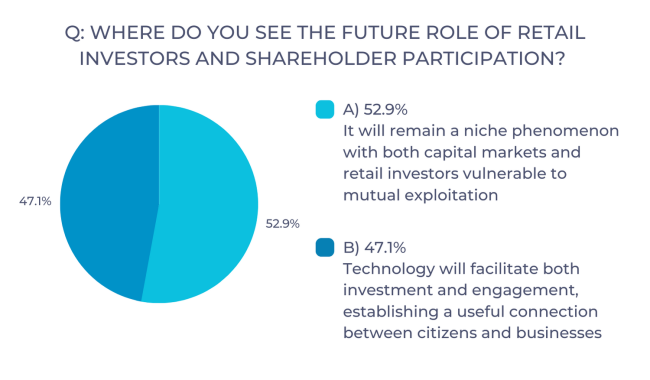Minding the Gender (eco) Gap
Issue 7 | October 2023
Greetings from Brussels,
This month's newsletter delves into the interwoven dynamics of gender equality, corporate leadership and sustainability. The inspiration behind this topic is the work of Claudia Goldin, who was awarded the Nobel Prize in Economics this month, in recognition of her work on gender-based inequality in the workforce, overturning false assumptions about the level of female labor-force participation and its underlying reasons.
Somewhat ironically, she is only the third woman among the 93 recipients of the Nobel Prize in Economics, which has been awarded since 1969. This underscores the significant gender gap we can observe in many academic disciplines. While women make up over 50% of undergraduate students in many countries , their presence decreases with every step of the academic ladder. Only around 16% of finance professors at the top 100 US business schools are women. Additionally, they are often faced with a gender pay gap.
Lacking gender equality does not just affect academia but also corporate leadership. Globally, women only occupy around 20% of board seats, and just about 5% of CEOs are female. While shamefully slow, progress is happening. Gender quotas for boards, heightened public attention, shifts in corporate culture and investor behavior all have their impact.
Increased public focus on gender equality is associated with higher board gender diversity, particularly in companies with an existing gender-equality-friendly corporate culture. As attention for gender equality rises, companies broaden their search for female directors and reduce their reliance on pre-established connections. Following the introduction of gender quotas, many companiesopened themselves up to a wider pool of more independent, experienced and internationally diverse talent.
Increased public attention does not just affect company behavior, but also that of investors. After shocks like the #MeToo scandal, markets favored companies with a positive corporate culture and women on their boards, while those with an exclusive culture experienced a negative market response.
In 2017, the ‘Big Three’ asset managers BlackRock, Vanguard and State Street increased the pressure on companies without at least two women on their boards, which helped to influence a 2.5x increase of female directors in US companies in the following two years. Since 2021, Norges Bank Investment Management requires that at least 30% of their portfolio companies’ directors are female. These examples show that there is a business case for companies to appoint more women as it can attract institutional investors and reduce their cost of capital.
Apart from the business case and the moral argument, which should go without saying, there’s another reason to call for more women in corporate leadership.
Research shows that women on boards increase the company’s environmental and social performance, suggesting that women have qualities or preferences that enable them to make companies more sustainable. The EU’s Gender Equality Index underscores a heightened awareness and sense of responsibility for climate change mitigation among women. Research has also identified a positive relationship between gender diversity on boards and the company’s renewable energy consumption.
This ‘eco gender gap’ is likewise observable on the investor side, where women-led mutual funds tend to engage more with their investee companies on environmental and social topics.
Achieving gender equality is therefore not only a moral imperative but also a strategic advantage for companies and a catalyst for positive change. Equal representation on boards can change companies, the economy and society for the better. While initiatives from the corporate world undoubtably help with the pursuit for equality, we should not fail to remember that the main heroines are those who have been actively fighting for gender equality for centuries and continue to do so today.
Cordially yours,
Marleen
P.S.: While I limit myself to this brief discussion of gender equality for now, it is crucial to underscore that many other questions of diversity and underrepresented minorities play an important role for responsible capitalism and equally deserve our attention. I’ll take a deeper dive into these topics in a future newsletter.


Marleen Och is a PhD researcher at KU Leuven, Belgium.
She works in the field of sustainable finance and corporate governance, writing about shareholder engagement and sustainability.
Please feel free to get in touch, share your thoughts and let us know how we're doing, email Marleen.Och@ecgi.org and follow us on Twitter at @ecgiorg
